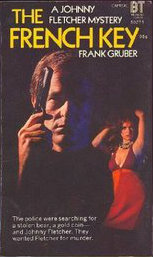
Review by Mirah W. (mwelday)
I recently finished The Sevenwaters Trilogy (Daughter of the Forest, Son of the Shadows, and Child of the Prophecy) by Juliet Marillier and really enjoyed them all. The books were recommended to me by my friends Sara and Tasha so I shouldn’t have had any doubt I would like the books; they always give me great recommendations! I decided for this post I would pick my top seven highlights from the trilogy in a blatant attempt to encourage you to read it. So, without delay, here are my Seven Highlights of Sevenwaters (in no particular order):

1) The stories within the bigger story. Throughout the three novels there are characters who tell tales of the land and ancestors. These tales are told through music, around campfires, during banquets, within caves, or in quiet moments shared by characters. The tales are carefully written and inserted into the novels at the perfect point to shed more light on the overarching story yet each tale is an engrossing story all on its own.
2) The faith of family. In book 1, Daughter of the Forest, Sorcha is the youngest of seven children and the only daughter. Her brothers are transformed into swans by an evil sorceress and only Sorcha’s efforts can save them. The brothers have faith in Sorcha’s strength and this faith in family continues through the trilogy. Sometimes there are doubts and disagreements but the deep-seeded faith in family remains.
3) A band of tattooed warriors. At first introduction the mysterious band of tattooed warriors in book 2, Son of the Shadows, appear to be menacing, hard, and ruthless. Seeing their true colors and learning their histories make them some of my favorite characters of the entire trilogy.
4) Magic and fantasy without being cheesy. Sometimes I am skeptical of fantasy novels because they can get too cheesy for me. While the trilogy is obviously from the fantasy genre it becomes more about the characters than the fantasy.

5) The epic-ness of it all. I like long books (when I care about the characters). These books are lengthy and offer tons in terms of character development and backstory. I also like that the books continue with future generations of the family introduced in book one while still including original characters. I get very attached to characters so it’s nice to still have them around, even as secondary characters.
6) Sacrifice is rewarded. I don’t know many people who like to consistently give of themselves and get nothing in return, even if all they get is peace of mind. So, sure, I like authors who let those who sacrifice gain something in the end. And I also like that some characters I don’t initially like are redeemed through their actions.
7) True love wins at the end of the day. There are ups and downs, family trauma and drama, misunderstandings, and sacrifices but true love eventually wins out, this is especially true in Child of the Prophecy. Love doesn’t win in the exact way I would like but it’s a check in the win column anyway.
Have you read The Sevenwaters Trilogy? I’d love to know your picks for highlights, your favorite characters, or bookmarked moments. If you haven’t read them, I hope you’ll give them a try…and if you like them, there are three more books! Yep, Marillier wrote three more books and created a longer series. I haven’t read books 5-7 (Heir of Sevenwaters, Seer of Sevenwaters, and Flame of Sevenwaters) yet but I’ve already got them on my ‘to be read’ shelf so I’m hoping I enjoy them as much as books 1-3. And thanks, again, to my great friends for giving me an awesome recommendation!










